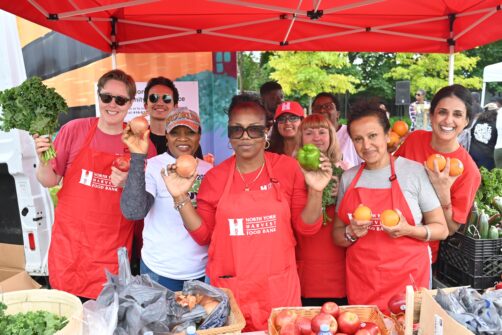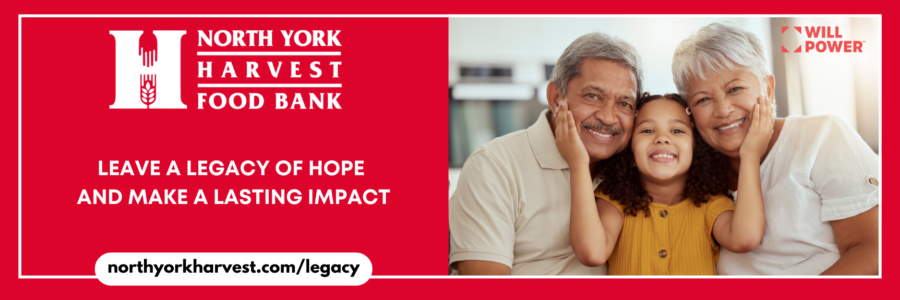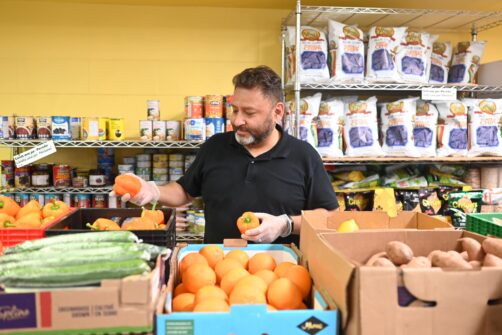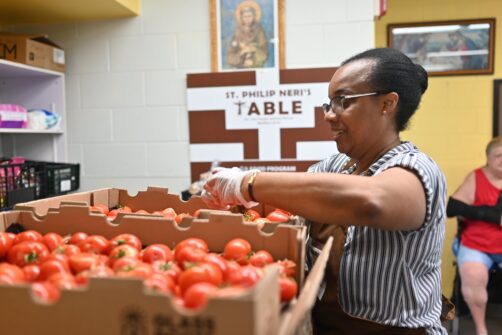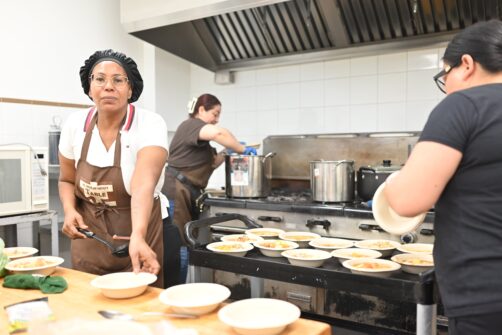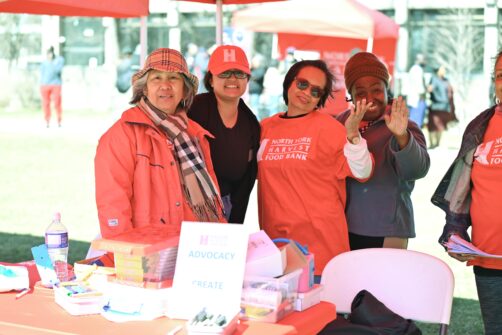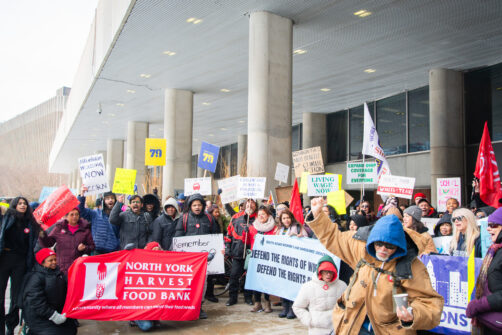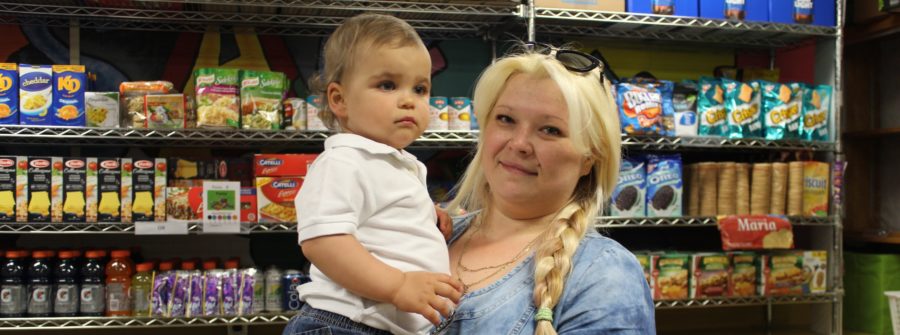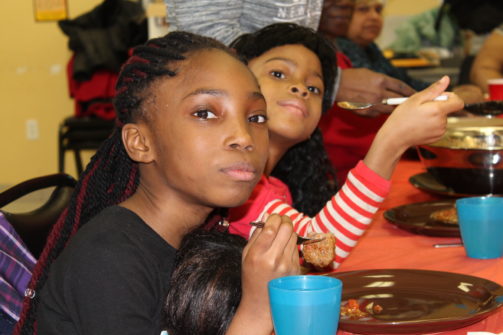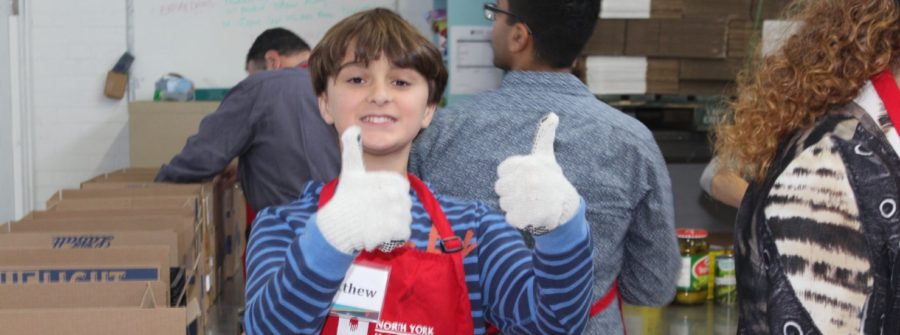What happens to food after it’s donated?
Comments Off on What happens to food after it’s donated?The journey of a food donation
Have you ever wondered what happens after you drop off food at North York Harvest Food Bank?
Lettuce give you an example…
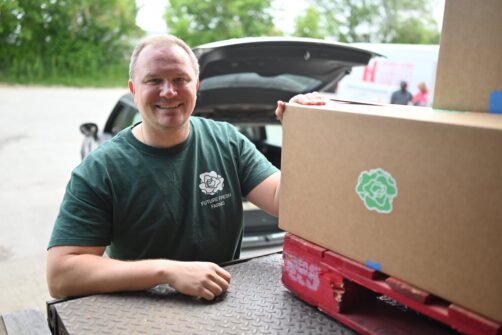
Our community partner Future Fresh Farms arrives at the warehouse on a Friday morning with a generous donation of their fresh, locally grown lettuce! They turn unusable, grey commercial space in Toronto into urban vertical farms to produce aeroponically grown food.
Over the past three months they have contributed 1,062 lbs of fresh produce to fight food insecurity and support our community!
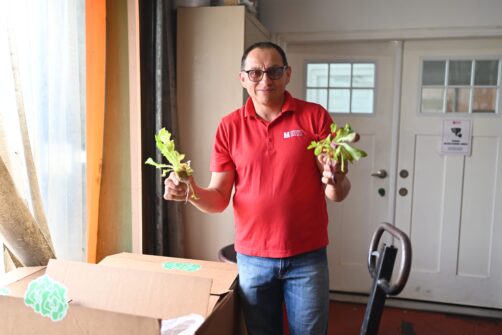
Once food arrives, our Operations team receives the items, weighs, and tracks them so we know how much food we have on hand to distribute, how long we’ve had it, and when/where it will be delivered to support individuals and families in need.
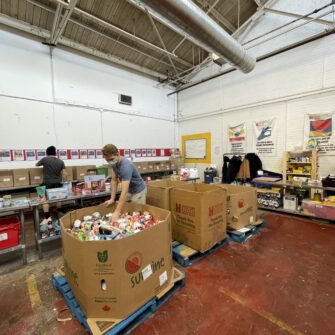
For non-perishable items dropped off from food drives or partner organizations, they’re added into the donation bins in our sort room to be inspected for safety by our diligent volunteers, and then sorted into boxes by category.
North York Harvest supports 30,000 clients in meeting their food needs every month, so food has to move in and out of the warehouse quickly and efficiently – especially perishable items like lettuce!
Each week we distribute about 46,000 lbs of food across our four community food spaces and our network of 37 partner agencies.
En Route
The lettuce is loaded up first thing in the morning into one of our delivery trucks.
First stop: Our Lawrence Heights Community Food Space.
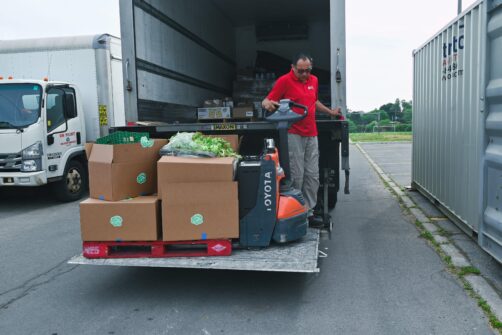
The Community Food Space is located within the Lawrence Heights Community Centre in the dance studio.
Our driver Oscar arrives at Lawrence Heights ahead of their program day at 11am. Volunteers help unload skids of food to put on the shelves and into the fridge as they set up for a busy day providing nourishing food to our community.
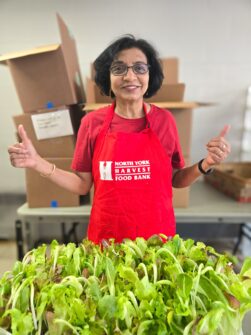
Tables, chairs, and shelving are pulled out of storage and loaded with non-perishable items from the morning’s delivery. In addition to non-perishables, clients will also have access to milk, eggs, bread, cucumbers, and of course, lettuce.
Lawrence Heights serves a diverse community, supporting 1340 clients every month in meeting their food needs.
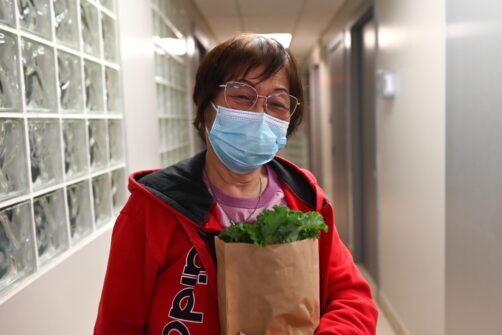
One of our community members, Flor, says, “I was so happy to see lettuce available!”
“It’s hard for seniors to find work. I’m having surgery soon, and I need the nutrients to be healthy, but when I go to the grocery store everything is so expensive,” Flor says.
“Whenever I get fruits and vegetables from the food bank, I like to make them into healthy juices,” she adds.
Every day our community comes together to ensure neighbours facing food insecurity have enough to eat. Every donation: From bottles of cooking oil, to pasta, and fresh produce makes this critical journey from our warehouse to our food spaces and into the hands of someone who needs it.
Learn how you can donate food and funds to support our neighbours in need.

